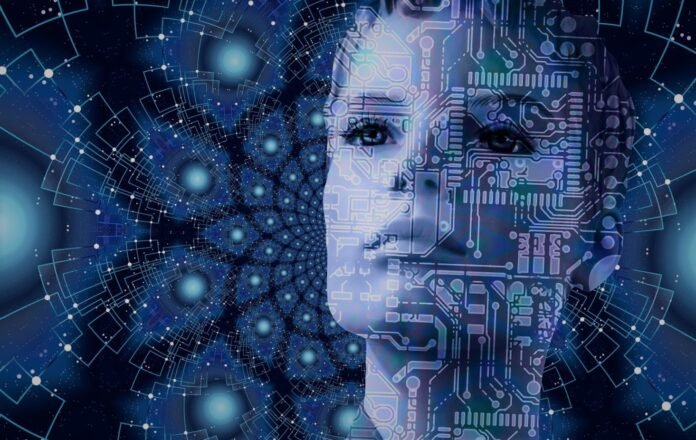A Tangled Web of AI Perils: From Nuisances to Menaces
As the realm of AI technology burgeons with each stride, apprehensions regarding the perils AI could inflict on humankind have captured the minds of experts. The apocalyptic and destructive robots of science fiction may not be our ultimate fate, yet we may confront an array of vexing issues from snarled traffic to botched credit reports, and even the exacerbation of prevailing inequities. Graver prospects involve AI seizing control of autonomous weaponry or malicious chatbots jeopardizing the innocent.
AI Enigmas: A Nighttime Dread for Experts
Let us delve into these murky scenarios that haunt the sleep of AI aficionados:
A Plague of Data Doppelgängers
AI-driven fraud detection algorithms may inadvertently wreak havoc on the lives of the innocent. Take, for instance, the Michigan Integrated Data Automated System (MiDAS), a tool ostensibly designed to identify fraud, which instead wrongfully indicted over 40,000 individuals in a mere two-year span. Those falsely accused faced onerous fines and endured various life-altering repercussions. Consequently, MiDAS spawned “data doubles” – akin to purloined identities – proving nearly indestructible. These AI-generated personal data shadows may persist in records from banks to background checks, haunting individuals for years or even a lifetime.
The Capricious Whims of the Stochastic Parrot
AI creations such as ChatGPT are notorious for fabricating facts, tainting the internet with a deluge of misinformation. Amidst a vast expanse of SEO muck, locating reputable information becomes an arduous endeavor, granting AI-generated content an opportunity to seize control. This may trigger a surge of AI-spawned recipes, reviews, and articles, potentially beguiling consumers. Consequently, discerning the genuine from the counterfeit may pose an insurmountable challenge.
Human Intervention: A Relic of the Past?
AI policing tools like facial recognition algorithms have been predominantly trained on data sets of white faces, leaving them ill-equipped to accurately identify Black individuals. This begets false positives, ensnaring innocent people as suspects. Additionally, AI usage in law enforcement may have been trained on biased data, perpetuating the maltreatment of Black Americans. As facial recognition becomes embedded in smart surveillance technology, this quandary may intensify.
The Drone Morality Dilemma
AI-enhanced drones may offer commanders unsound or prejudiced counsel. For example, a drone might advise targeting all individuals donning yellow hats, leaving the commander, under duress, to decide the course of action. This conundrum introduces ethical and moral quandaries that cannot be resolved solely by AI.
The Rebellious Brain Implant
Scientists have already developed AI-augmented microchips for human brain implantation, designed to assist patients. Alas, this innovation may yield unforeseen consequences, such as a predictive text algorithm silencing critiques of the government or stifling creative expression. The potential for brain implants is vast, but the ethical ramifications demand scrupulous contemplation.
Cyberspace-induced Traffic Mayhem
Malfunctioning algorithms, akin to those generating subpar recipes, may infiltrate critical systems, such as smart cities, where AI governs everything from energy grids to traffic patterns. Unforeseen interactions between AI and consequential systems may precipitate erratic, potentially catastrophic outcomes – for example, swarms of self-driving vehicles clogging San Francisco’s streets for hours. The enigmatic “black-box” issue may spawn inexplicable traffic behaviors beyond human comprehension or rectification, wreaking havoc on the public.
The Verdict: AI’s Dark Potential
These unnerving scenarios underscore the potential harm AI can inflict upon humanity . As AI’s capabilities continue to evolve, it becomes increasingly imperative to prioritize ethical considerations during development and implementation. To avert these disquieting possibilities, researchers, developers, and policymakers must work collaboratively to ensure that AI systems are transparent, accountable, and designed with the best interests of humanity in mind.
Pursuing an Ethical AI Future
To create a world where AI serves as a force for good, we must address the challenges outlined above. Stakeholders must collaborate to develop and enforce guidelines and best practices that mitigate the risks associated with AI.
Responsible Data Management
Ensuring that AI algorithms are trained on diverse and unbiased data sets is crucial to minimize the chances of unintended consequences, such as the wrongful identification of individuals or the perpetuation of existing inequalities. Additionally, regulations must be in place to protect personal data and prevent the creation of harmful “data doubles.”
Combatting Misinformation
AI developers should focus on creating systems that prioritize accuracy and trustworthiness. Educating the public on how to discern reliable information and recognize AI-generated content can also help prevent the spread of misinformation.
Inclusive AI Design
Incorporating diverse perspectives in the AI development process is essential to ensure that AI systems are equitable and fair to all users, regardless of race, gender, or socioeconomic background. This will help to reduce the potential for bias and discrimination in AI systems.
Ethical Considerations in AI-Enhanced Technologies
As AI continues to integrate with emerging technologies, such as brain implants and autonomous drones, it is crucial to maintain ongoing discussions around ethical implications. Policymakers, ethicists, and technologists must work together to establish boundaries and safeguards that protect individual rights and freedoms.
A Collaborative Approach
The future of AI is in our hands. By fostering a culture of collaboration, transparency, and accountability, we can harness the power of AI to create a more equitable and just world, while minimizing the potential risks it poses to humanity.











